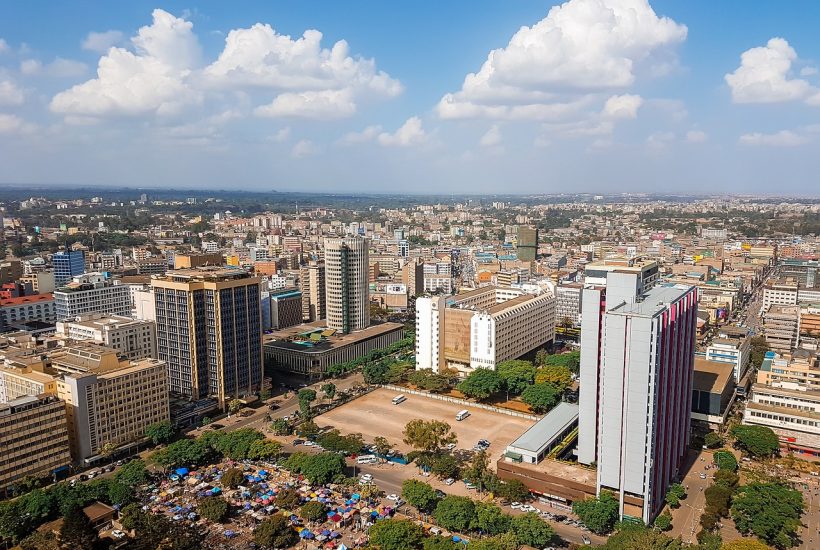Featured
106 Nigerian and 12 Kenyan Fintech Companies Licensed to Operate
In Kenya, the CBK said it will now ensure that details of business models, consumer protection, and the reputability of proposed shareholders, directors, and management are all legally verified. As for Nigeria, of the 106 fintech companies that have received their approvals, 65 have received full approval, while the remaining 41 have received conditional approval, according to a list published by the FCCPC.

In Africa, the number of fintech startups increased by 81% between 2019 and 2021 according to “The Future of Fintech – Africa” published by Mastercard. Among these fintech companies are several non-legalized ones considered predatory applications. Measures are being taken for their compliance.
In Nigeria, 106 more fintech companies specializing in credit via a web or mobile app received their license to operate in the country on Wednesday, January 25th, from the Federal Competition and Consumer Protection Commission (FCCPC). In Kenya, 12 more fintech companies received their license on Monday, January 30th, from the Central Bank (CBK). This brings the total number to 22 in the East African country.
“The commitments included business models, consumer protection, and the suitability and reputability of proposed shareholders, directors, and officers…This is to ensure compliance with relevant laws and, most importantly, the protection of customers’ interests,” the CBK said.
Indeed, it was since 2022 that both countries took regulatory measures to secure financial credit activity via web or mobile applications. The decision stemmed from the growing number of consumers who denounced various practices, including too high-interest rates.
So in November 2022, Google informed credit fintech companies in both countries that the hosting of their app on Play Store will be conditional from January 2023 on the presentation of a genuine activity authorization. “Google has been very supportive, including providing us with their expert knowledge and experience to advise us on what works best to achieve laudable regulatory goals,” said Babatunde Irukera, CEO of the FCCPC, following Google’s decision.
In Kenya, the CBK said it will now ensure that details of business models, consumer protection, and the reputability of proposed shareholders, directors, and management are all legally verified. As for Nigeria, of the 106 fintech companies that have received their approvals, 65 have received full approval, while the remaining 41 have received conditional approval, according to a list published by the FCCPC.
Read more about the African fintech sector and find the latest financial news of the day with the Born2Invest mobile app.
In Africa, digital transformation is gaining momentum
At the heart of this change, start-ups play a major role in improving people’s access to various services, hence the importance given to their funding
In its report entitled “Africa Tech Venture Capital” and published on Tuesday, January 24th, Partech Africa, the venture capital fund dedicated to young technology companies in Africa, indicates that the resilient African technology ecosystem has distinguished itself with a growth of 8% compared to 2021.
According to the report, “in 2022, debt financing doubled in volume to reach $1.5 billion, compared to the amount of $767 million in debt obtained by African start-ups in 2021. tech start-ups on the continent hit $6.5 billion, an increase, spread across 764 deals from 724 rounds in 2021,” the report read.
Partech Africa also indicates that in 2022, fundraising activities remained stable at all stages. At $1.4 million, Seed+ ticket size was on average higher in 2022 (+12% year-on-year), while Series A remained the same at $8.5 million.
__
(Featured image by ninastock via Pixabay)
DISCLAIMER: This article was written by a third party contributor and does not reflect the opinion of Born2Invest, its management, staff or its associates. Please review our disclaimer for more information.
This article may include forward-looking statements. These forward-looking statements generally are identified by the words “believe,” “project,” “estimate,” “become,” “plan,” “will,” and similar expressions. These forward-looking statements involve known and unknown risks as well as uncertainties, including those discussed in the following cautionary statements and elsewhere in this article and on this site. Although the Company may believe that its expectations are based on reasonable assumptions, the actual results that the Company may achieve may differ materially from any forward-looking statements, which reflect the opinions of the management of the Company only as of the date hereof. Additionally, please make sure to read these important disclosures.
First published in we are tech.africa, a third-party contributor translated and adapted the article from the original. In case of discrepancy, the original will prevail.
Although we made reasonable efforts to provide accurate translations, some parts may be incorrect. Born2Invest assumes no responsibility for errors, omissions or ambiguities in the translations provided on this website. Any person or entity relying on translated content does so at their own risk. Born2Invest is not responsible for losses caused by such reliance on the accuracy or reliability of translated information. If you wish to report an error or inaccuracy in the translation, we encourage you to contact us.

-

 Biotech4 days ago
Biotech4 days agoUniversal Nanoparticle Platform Enables Multi-Isotope Cancer Diagnosis and Therapy
-

 Fintech2 weeks ago
Fintech2 weeks agoRuvo Raises $4.6M to Power Crypto-Pix Remittances Between Brazil and the U.S.
-

 Impact Investing1 day ago
Impact Investing1 day agoMainStreet Partners Barometer Reveals ESG Quality Gaps in European Funds
-

 Biotech1 week ago
Biotech1 week agoEurope’s Biopharma at a Crossroads: Urgent Reforms Needed to Restore Global Competitiveness






















